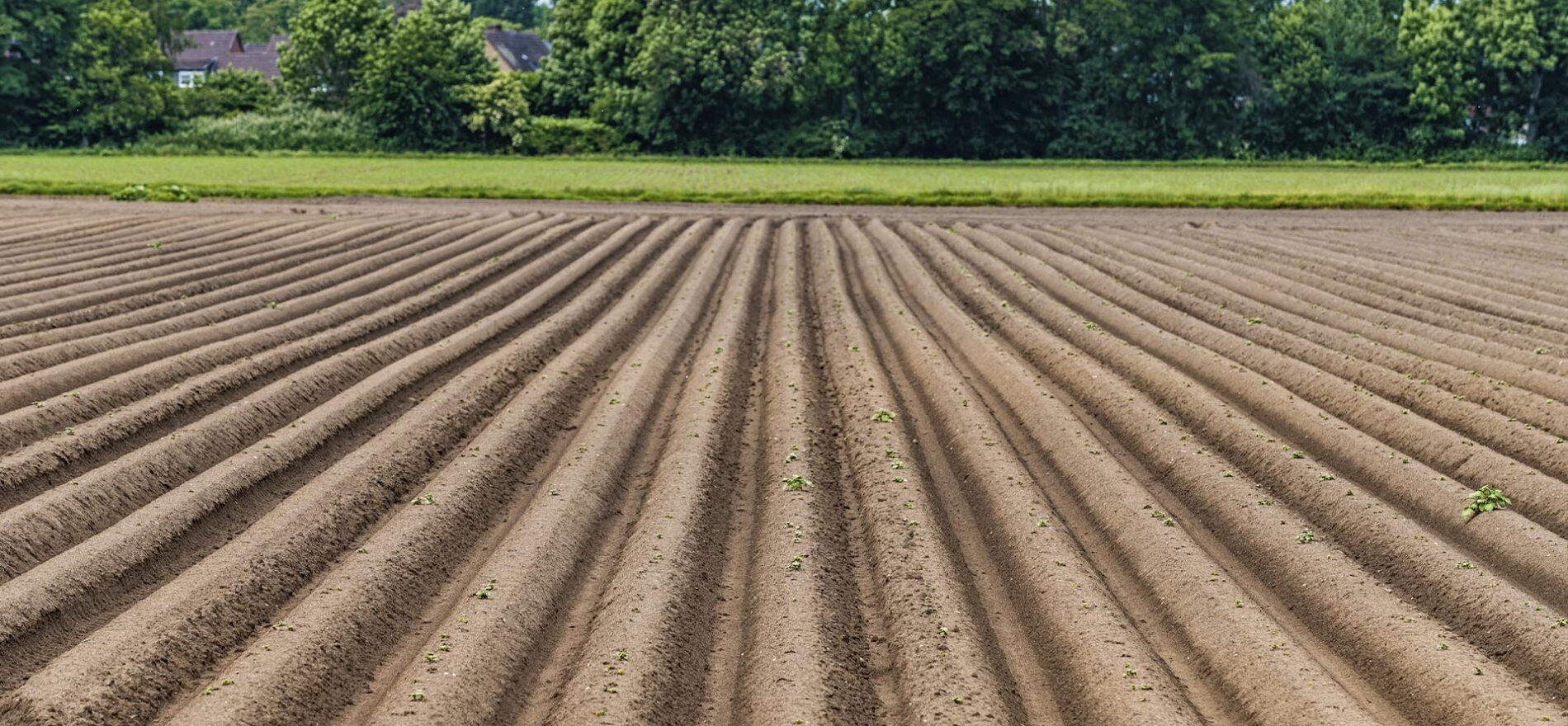10 While the people of Israel were encamped at Gilgal, they kept the Passover on the fourteenth day of the month in the evening on the plains of Jericho. 11 And the day after the Passover, on that very day, they ate of the produce of the land, unleavened cakes and parched grain. 12 And the manna ceased the day after they ate of the produce of the land. And there was no longer manna for the people of Israel, but they ate of the fruit of the land of Canaan that year.
– Joshua 5:10-12 (ESV)
This was the first Passover of Israel after they left the wilderness. Notice: as soon as they ate of the fruit of the land, the manna ceased. The manna was an act of God’s direct provision. Israel had been wandering the wilderness for the prior forty years, and manna was food that the LORD supernaturally provided for them each morning. This was in my reading for today, and when I read this verse, I had to stop.
What just happened?
Israel transitioned. They went from looking forward to the promise to walking in the promise. With that transition, God’s provision also changed. He didn’t cease to be their Provider, but how He provided shifted into a different gear. If you keep reading, He went with them in battle again and again, but in the realm of food, His provision changed from directly giving them food to the covenantal agreement that if they walked in His ways, His blessing would follow.
8 The LORD will command the blessing on you in your barns and in all that you undertake. And he will bless you in the land that the LORD your God is giving you.
– Deuteronomy 28:8 (ESV)
Here’s where my mind went. Manna is like milk. It’s a necessary provision for us when we are young in our faith, but as the LORD matures us, we move on to more nutritious things. The author of Hebrews scolded his readers/hearers over their continued dependence on milk. He said that some of them should have been teachers by that time, but they still needed milk.
12 For though by this time you ought to be teachers, you need someone to teach you again the basic principles of the oracles of God. You need milk, not solid food,
– Hebrews 5:12 (ESV)
As we mature and begin not just learning about God’s promises but walking in them, we should also transition from milk to solid food. The Israelites began walking in His promise, inhabiting the land and eating its food, and God cut off the manna. It was time to walk maturely. It was time for Israel to put their hand to the plow, work out the covenant that God had made with them, and trust the LORD’s faithfulness.
Here’s Our Problem
This isn’t unique to us. Every generation of believers walks through its own version of this problem. The problem is this: we want to see supernatural provision with minimal plowing. We want to walk in the blessing of the LORD while we do as little as possible to bless the LORD. Folks, it just doesn’t work that way. While there are many differences between the Old Covenant and the New Covenant, one thing remains the same: He desires obedience more than sacrifice.
22 And Samuel said,
“Has the LORD as great delight in burnt offerings and sacrifices,
as in obeying the voice of the LORD?
Behold, to obey is better than sacrifice,
and to listen than the fat of rams.”
– 1 Samuel 15:22 (ESV)
You can come to church; you can serve in ministry; you can lead your family in devotions; you can give large sums of money to missions; but if you aren’t walking in obedience, don’t expect supernatural provision. Don’t expect to reap the bounty of God’s promises in your life unless you are plowing your own heart through obedience. And we avoid plowing with all sorts of other activities. In my own experience, I can get hooked on learning about theology. The pursuit of theology is a very real substitute for me because it satisfies the intellectual aspects of my personality. In fact, it is a dangerous substitute because learning about God feels like you’re actually getting to know God. Another similar substitute is the pursuit of experiences. We can get hung up on discovering spiritual gifts and the experiences that accompany them because it feels like you’re getting close with the LORD.
Theology is a good pursuit. Spiritual gifts are things we should expect and even seek. In fact, I would question the veracity of your profession if you never deepen your understanding of God nor ever demonstrate that you’ve received one or more spiritual gifts for building up the Body of Christ. Those are things the Word tells us we should anticipate as believers. Yet, none of the fruits of our faith should ever take precedence over the Vine who gives and nourishes those fruits. Seek the Vine – Jesus – and the fruit of the Vine will grow in our lives.
I said all of that to say this: those tasty pursuits are no substitute for bland obedience. Obedience is like drinking water. It’s tasteless, colorless, odorless, and lined up for children in a row of sweet beverages would likely be the last one chosen. But you can’t live without it. Your spiritual life crumbles in the absence of obedience. Your relationship with the LORD is grieved without obedience. Read the rest of Samuel’s statement:
23a For rebellion is as the sin of divination,
and presumption is as iniquity and idolatry.
– 1 Samuel 15:23a (ESV)
Rebellion and presumption go hand in hand. When we rebel, we presume that what we want will be better than what the LORD wants; that our plan will be more satisfying than God’s plan. So when we walk in disobedience, we become guilty of divination and idolatry. That’s the severity of disobedience, and we cannot have a right relationship with the LORD as long as we refuse to put our hands to the plow. And the absurd thing is that many who refuse to plow (obey) complain that the faith is boring or that they can’t seem to find their purpose, and so on and so forth. Bottom line: refusing to grow is walking in disobedience.
What happened to the first generation of Israelites who refused to enter the Promised Land? They died in the wilderness. That generation refused to grow. In a manner of speaking, they refused to get off the manna. Entering the Promised Land – entering into maturity – means there will be work. Hard work. In New Testament parlance, we have to get off the milk. Like milk, manna is for children. And whether you like it or not, the Christian life isn’t Toys ‘R Us, where you don’t have to grow up.
You have to grow up. One way or another, the LORD will take away the manna, and you’ll either put your hand to the plow and mature, or you’ll shrivel on the vine. Those who shrivel on the vine are very much like the seed that fell on rocky soil. That seed grew up quickly, but when things got difficult, it withered because it had no root.
Manna wasn’t meant to sustain Israel forever. Neither does milk. We are meant for maturity. Manna is for children. Solid food – the produce of the Promise – is for those who mature by putting their hands to the plow, walking in obedience to the LORD.







Excellent! Joshua and Israel celebrated the Passover for the first time in over 40 years. Why? It began in Exodus Chapter 6 prior to the Exodus of Israel from Egypt. In Chapter 6 God remembered His covenant promises to Abraham, Isaac, and Jacob (Israel). He promised to bring them out from under the burdens of Egypt (Sanctification), to deliver them from Egyptian bondage (Deliverance), to redeem them with an outstretched arm with great judgments (Redemption) and to take them as His people and be their God (Joy). He also promised to fulfill His promise by giving them a land as an inheritance. He did all that after Israel did laps in the desert for DISOBEDIENCE. Manna was provided even in disobedience. When manna ceased and they began to eat from the land, Not only had the Passover and Feast of Unleavened Bread been observed but the Feast of First Fruits was established!
Now, what did Jesus do for us? Sanctified us? Delivered us? Redeemed us with arms outstretched (and He will judge), He is our Lord and Savior, our joy. AND We have an inheritance not in a land but a kingdom upon His return. We are entering into that same season. The Passover and Feasts are not merely Jewish holidays. They are God’s Holy Days. Excellent article. I enjoy your insights.
Thanks Lonnie!